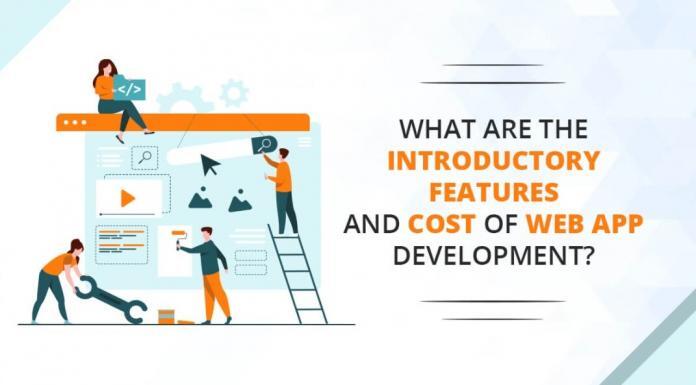COVID-19 has affected the world in ways that no one could have ever imagined or predicted. This disruption caused by COVID-19 is the hallmark of 2020 and 2021. Globally, organizations now began to re-think, re-imagine, and re-evaluate their processes to survive and thrive. Here, digital transformation trends come into the picture.
It is necessary for enterprises to respond and innovate their strategy during the pandemic and find new ways to operate and drive growth. In the coming year, the Global Digitization Trends will focus on increased resilience and preparedness for the after-effects of COVID.
Keeping this aspect in mind, here we are sharing the list of 10 strategic trends for digital transformation solutions that will dominate enterprises in 2022. These trends highlight the areas of opportunity and ways for organizations to establish themselves in this cut-throat competition.
Top Ten Digital Transformation Trends to Watch in 2022
1. Power of 5G
2021 was a huge year for 5G. We saw regular and agile 5G deployments globally by various companies. While telecommunications are booming with the use of 5G, it will also be used in scenarios enabling the advancement of edge computing, real-time monitoring, and low-latency high-speed applications. In 2022, 5G will champion the disruption scene as it continues to transform every industry affecting our daily lives.
2. Cybersecurity gets a boost
Cybersecurity fell off the list of important tech trends last year, but as the pandemic grows, cybersecurity has become very relevant again. Hackers have taken advantage of the coronavirus pandemic to expand their campaigns of attacks against businesses around the world. We have seen a significant increase in attacks on banks and attacks on cloud servers. It has become imperative that companies strengthen their networks and upgrade their cybersecurity strategies.
We strongly believe that AI and machine learning will be key to this trend as we will see the continued increase in nefarious activities requiring more sophisticated equipment and algorithms.
3.Privacy and Confidential Computing Gains Momentum
Another way to strengthen cybersecurity, especially when addressing communications and data privacy, is confidential computing. The purpose of confidential computing is to encrypt the entire computing process, not just the data, creating additional layers of security around sensitive information.
4. Responsible AI
Many people think that AI is a “future” trend but it is quite a part of our daily lives. This influences what we see on social media to recommend movies on Netflix or suggested products when shopping on Amazon. As computing power becomes more affordable and the cloud enables access to this computing power as well as software and infrastructure, more and more companies will be able to benefit from AI.
5.Internet of Behaviors
Internet of Behavior (IoB) is about changing behavior using data. IoB serves as a major step in knowing how data is collected and used. There has been an increase in technologies that aggregate data spanning the digital and physical worlds – for example, facial recognition, location tracking, 5G-powered edge computing, and big data. This collected data can be used to influence behavior through a feedback loop.
– Intelligent Experience
It is an amalgamation of Customer Experience, Employee Experience, Workplace Experience, User Experience, Multi Experiences, Digital Experience, and Emotional Experience.
– Composable Enterprise
Composable Enterprise (CE) is employed to diversify business operations using microservices from application networks, APIs, and beyond. This means that instead of providing a single product or service, the enterprise provides a variety of microservices to its customers.
The pandemic has made enterprises a quick adopter of modern technologies and it is where composable enterprises come in hand. Enterprises with a single product or service will find it difficult to adjust to unprecedented changes as a new business model driven by the new normal, as opposed to enterprises with microservices.
– Low or No Coding Platforms
The workforce no longer has the luxury of working from a single location, and this has affected the productivity of many enterprises. This requires a lot of time, effort, and money to develop platforms to streamline business processes. This can easily be done when they choose a low or no code first strategy. It provides a robust model that allows for interoperability between functions as needed to enhance operations in the future.
Also Read : Digital transformation in times of Covid-19
– Data Analytics
Companies are investing in data analytics to transform customer experiences. The value of data analytics depends on the data they feed.
– Anywhere Operations
It refers to the IT model that focuses on supporting customers, enabling employees, and streamlining the deployment of business products and services from any geographic location.
This IT operation model also helps with the hyperlocal business model where the enterprise collaborates with local businesses for agile delivery of products and services from an offline location within a proximity of a few kilometers. This concept has helped to revolutionize the traditional idea of supply chains.
A Gartner study predicts that, by 2023, 40% of organizations will adopt Operations Anywhere for an overall optimized customer and employee experience.
Concluding Lines
The year 2022 is all about showing resilience against the challenges posed by the pandemic. We need to focus on the health of the business and its stakeholders. Innovations in terms of business model, business operations, and security are the anticipated highlights of the year ahead.










